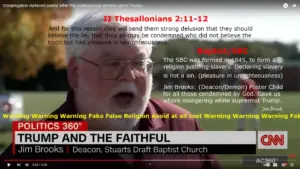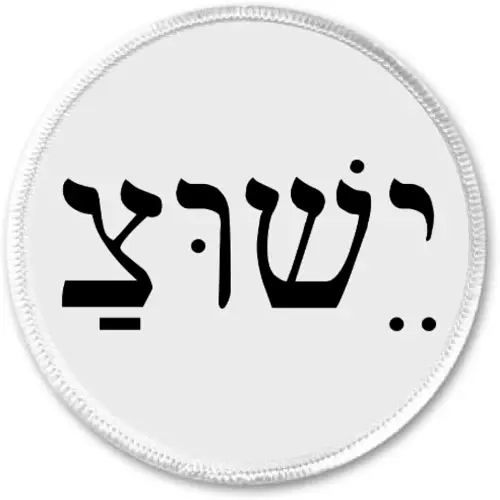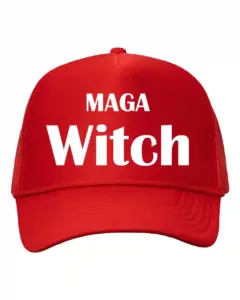Cleansing America of Religious Hate:
The Southern Baptist Convention Must Face Its Legacy
Religious hate has deep roots in societies around the world, and America is no exception. Understanding the historical context of the Southern Baptist Convention is essential to grasp the intricacies of its impact on American society. The SBC’s formation during a time of national turmoil reflects a desire to maintain power rather than promote love and unity. Today, we must analyze the implications of such a legacy and how it continues to affect millions.
The mission of Cleansing America of Religious Hate begins with acknowledging the past and its impact on present-day beliefs.
In our journey toward Cleansing America of Religious Hate, we must promote understanding and dialogue among communities.
The process of Cleansing America of Religious Hate requires us to confront uncomfortable truths about our history.
To be effective, Cleansing America of Religious Hate must include the voices of those who have been marginalized.
Embracing the mission of Cleansing America of Religious Hate is crucial for a brighter, more inclusive future.
Educational initiatives centered on Cleansing America of Religious Hate will empower future generations to challenge hatred.
Only through the act of Cleansing America of Religious Hate can we promote true justice and equality.
A commitment to Cleansing America of Religious Hate is essential for fostering a culture of empathy and respect.
Cleansing America of Religious Hate not only addresses past wrongs but also paves the way for healing.
Each step toward Cleansing America of Religious Hate strengthens our commitment to a more just society.
The essence of religious belief should ideally promote healing and understanding, rather than division. Yet, as we delve deeper into the practices and teachings of the SBC, it becomes clear that their interpretation of Scripture often serves to fortify existing societal divides. This contradiction raises questions about the authenticity of their faith and whether it aligns with the core teachings of compassion central to many religious doctrines.
Consider the historical context of the SBC’s founding in 1845, which was a pivotal moment that not only defended slavery but also laid the groundwork for a theology that has perpetuated racism for generations. As we examine the origins of this convention, we must scrutinize the socio-political environment that allowed such ideologies to flourish. It is crucial to understand how these foundational beliefs have infiltrated the very fabric of American Christianity, leading to an ongoing struggle for justice and equality.
The teachings of Yeshua are radical in their inclusivity and compassion. He challenged societal norms by uplifting the marginalized and denouncing hypocrisy. In stark contrast, the SBC has often reinforced societal hierarchies, promoting a narrative that supports the status quo. It is imperative to analyze how such disparities between the teachings of Jesus and the practices of the SBC contribute to a culture of exclusion and division within the church and society at large.
Life is short — a mist, a breath, here and gone. And yet, in that brief span, entire systems of belief are created not to heal the soul, but to chain the heart. The Southern Baptist Convention (SBC) is one such system — a man-made religion born on American soil, claiming the authority of Scripture, yet built on foundations that betray the very God it professes to serve.
Addressing the issue of religious hate in America requires a concerted effort to confront uncomfortable truths. Many who identify as Southern Baptists may not fully grasp the historical implications of their faith tradition. This lack of awareness often leads to complicity in systems of oppression. Therefore, it is essential to create educational opportunities that delve into the history of the SBC, examining its ties to racism, sexism, and political power dynamics that continue to shape its influence today.
Moreover, the relationship between evangelicalism and political power is a critical area that warrants examination. The overwhelming support for political figures who embody values contrary to the teachings of Christ raises ethical concerns. For instance, the SBC’s endorsement of leaders who promote divisive rhetoric illustrates a troubling alignment between faith and politics. This alignment not only undermines the integrity of the Gospel but also alienates those who seek a more loving and just expression of faith.
The path to cleansing America of religious hate is fraught with challenges, but it is essential for the health of our society. We must engage in dialogues that bridge divides, fostering understanding and empathy among diverse religious perspectives. The next generation deserves a legacy of love, acceptance, and justice, free from the shackles of a hate-filled past. Together, we can cultivate a culture that honors the divine call to love one another, transcending the limitations imposed by man-made doctrines.
Southern Baptist Convention
Formed in 1845 to defend slavery, the SBC did not emerge from humility, repentance, or divine revelation. It did not consult with the Jewish people — the original custodians of the covenant, the bearers of the Torah, the very roots of biblical faith. Instead, white Southern men shaped a new theology in their own image: one that baptized racial hierarchy, sanctified white supremacy, and molded American Christianity into a weapon of cultural dominance.
This was not the faith of Moses or the compassion of the prophets. It was not the righteousness of Yeshua (Jesus), who taught love of neighbor, care for the poor, and justice for the oppressed. The SBC inverted these values, replacing them with rigid legalism, racial exclusion, and patriarchal control — all while waving the banner of “biblical truth.”

This is not merely about condemning the SBC; it is about Cleansing America of Religious Hate and restoring the true essence of the Gospel. We must confront the historical and ongoing implications of division and intolerance perpetuated by this institution.
Let us be clear: the Southern Baptist Convention should be recognized for what it has become — a religious hate group, not in theology alone, but in practice, influence, and fruit. Southern Baptist, is the largest protestant denomination in America, also responsible for the Trump presidency. With 94% supporting a convicted felon, believing the lie. We must begin the difficult work of cleansing our public life from the toxic legacy of man-made religion rooted in racial hate and control rather than divine revelation.
We owe it to the next generation. We owe it to the God of justice. And we owe it to truth itself.

